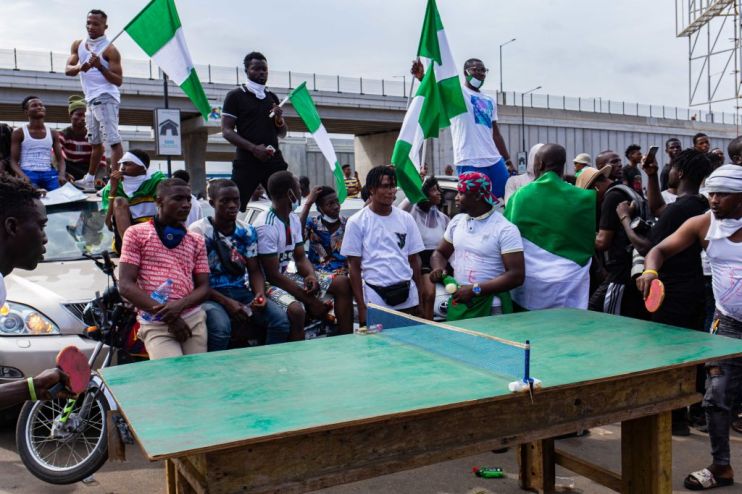Lagos imposes 24-hour lockdown amid protests against Nigeria’s police

The Nigerian state of Lagos today imposed a 24-hour curfew, saying protests against alleged police brutality had turned violent after a police station in the commercial capital was set on fire.
A business group said the demonstrations had cost Nigeria $1.8bn.
Thousands of Nigerians demanding an end to alleged police brutality have taken to the streets every day for more than a week across the country, posing a challenge to President Muhammadu Buhari.
Governor Babajide Sanwo-Olu said the curfew would include Lagos – Africa’s largest city with 20 million inhabitants.
Only essential workers were exempted.
“I have watched with shock how what began as a peaceful #EndSARS protest has degenerated into a monster that is threatening the wellbeing of our society,” he said.
Nationwide protests have continued despite the dissolution of the Special Anti-Robbery Squad (SARS) on Oct. 11 following accusations of human rights abuses.
A police station in the Orile Iganmu area of Lagos was set ablaze on Tuesday, TV news station Channels reported.
Early in the protests, police fired on protesters in the Surulere area of Lagos and elsewhere. Armed gangs have attacked protesters in Lagos and the capital Abuja.
Amnesty International said at least 15 people had been killed since the protests began.
Disruption
The Lagos Chamber of Commerce said Nigeria’s economy had suffered an estimated loss of 700 billion naira ($1.84 billion)in the last 12 days due to the disruption.
The southern state of Edo on Monday imposed a similar curfew after a jailbreak by prisoners during protests.
Politician Femi Gbajabiamila, said he would not sign off on the federal budget for 2021 unless it included provisions to compensate victims of police brutality over the past two decades.
Youth minister Sunday Dare said the government had met demonstrators’ demands for talks on reforms in law enforcement.
Dare also urged them to enter into dialogue..
Officials say they fear a surge in coronavirus infections due to people attending demonstrations.